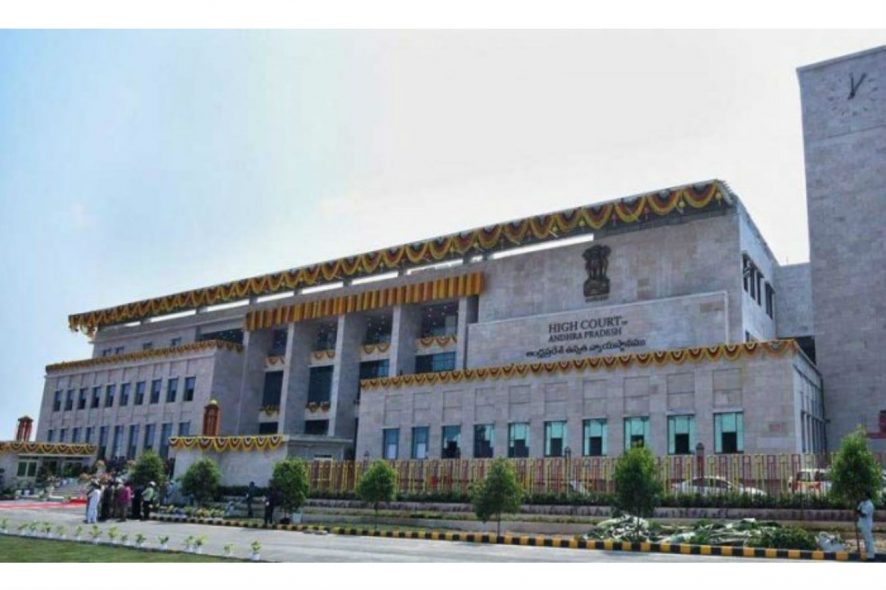Andhra Pradesh High Court: Opining that, a Math, which is a separate institution rendering certain religious and other functions pertaining to a particular denomination is different from a temple which is open to all for worship, D.V.S.S. Somayajulu, J., held that,
Minimum Wages Act, 1948 will not be applicable to the Math.
Instant petition was filed by the petitioner – Math to seek reliefs.
Senior Counsel, C.R. Sridharan, for the petitioner submitted that petition was a Math which is a specific religious denomination.
He added that the petition was filed because the respondent was attempting to interfere with the activities of the Math and directing the petitioner to pay minimum wages, etc. to the persons employed in the Math.
Respondent’s action was challenged.
Senior Counsel added that respondent-State does not have the right to interfere with the Management of the math and issue the directions contained in the impugned memos.
Petitioner’s counsel submitted that there is a fundamental distinction between a Math and a temple although both can be called a religious institution.
Government Pleader argued that coming to the issue of wages, the respondents are not insisting upon the payment of the wages, more so, under the Minimum Wages Act, but are essentially trying to ensure that the equal pay for equal work principle as enunciated in the case of State of Punjab v. Jagjit Singh, (2017) 1 SCC 148, is actually followed.
Analysis, Law and Decision
High Court noticed that it is a fact that a “Math” is distinct from a “Temple”.
Temple and Math are both religious institutions, but the purposes for which they are established and the manner in which they function are clearly specified in Section 2(17) of A.P. Charitable and Hindu Religious Institutions & Endowments Act, 1987 Act.
As per the above-stated Sections, Math is an institution headed by a person whose primary job is to engage himself in teaching, propagation of religious philosophy etc., and impart religious training etc.
On the other hand, Temple is a place, which is dedicated to and keep used as a place of public religious worship.
Hence in view of the above distinction between the two institutions is clear.
Under Section 6 of the Act also, the income or the change in income of the Math cannot lead to a change in the classification of the Math. It is only possible for the institutions and endowments under Section 6(a), 6(b) and 6 (c) of the Act, which are included in this section. If their income exceeds or falls below the stipulated limit, for the three years, their position can be changed, but this is clearly not applicable to a Math.
Whether Commissioner’s power extends to giving the direction to pay Minimum Wage of the Minimum Time Scale?
In Court’s opinion, the general power of superintendence given to the Commissioner does not extend to interfere in the secular activity and was limited in its scope.
Section 8 makes it clear that the superintendence and control includes the power to pass an order to ensure that institution is properly administered and the income is spent for the purpose for which they were found.
Section 8 (1) is to ensure that the funds are spent for the purposes for which they are intended only.
Section 8(2) which starts with a non-obstante clause also talks of exercise of powers ‘conferred’ on him or the functions ‘entitled’ to him by the Act.
No statutory provision has been pointed out by which this particular power to give directions to pay minimum wages etc., is shown to the Court.
Further, Court also added that on the issue that, if Section 8(1) and Section 49 of the Act are read together, the limited powers of the Commissioner become clear. They are limited to the fixing/spending/utilization of the “dittam‟ only. In case of disagreement, the matter has to be referred to a Court for decision (Section 49-Proviso). Similarly, the amendments to Sections 51-53 etc., where the Commissioner has been substituted by the “Dharmika Parishad” also makes it clear that the role of the Commissioner is very limited.
The Minimum Wages Act applies to certain employments (preamble) which are specified as “scheduled employments” Section 2(g). Employments specified in Part-I/II of the Schedule (Section 3). The schedule is silent about employment in a Math.
“…only in cases of misconduct or mismanagement of the properties by the Mahant, it would be permissible for the State to interfere under Section 51 of the Act.”
While reaching the conclusion, Bench expressed that the autonomy given to a Math to maintain and administer its activities also supports the view that the respondents cannot interfere in every activity, in case respondents have such a power to interfere every activity it would run contrary to the constitutional and other guarantees given to the religious denominations to carry their own activities.
Therefore, in view of the above analysis, High Court held that the memos dated 04.07.2018; 05.12.2018 and the consequential memo dated 19.04.2021 will not be applicable to the petitioner – Math. [Sri Raghavendra Swamy Mutt v. State of Andhra Pradesh, 2021 SCC OnLine AP 2938, decided on 21-9-2021]
Advocates before the Court:
Counsel for the Petitioners: Sri C.R. Sridharan, Senior counsel rep. Sri G.V.S.Ganesh
Counsel for the Respondents: Government Pleader for Endowments







